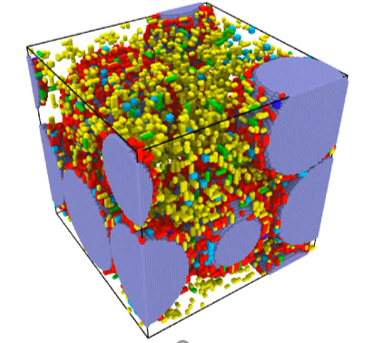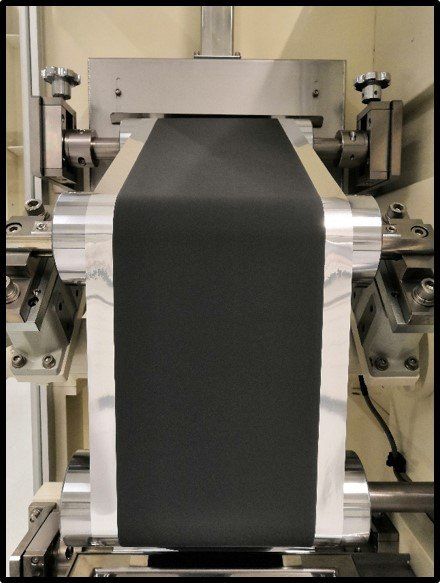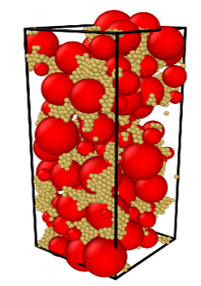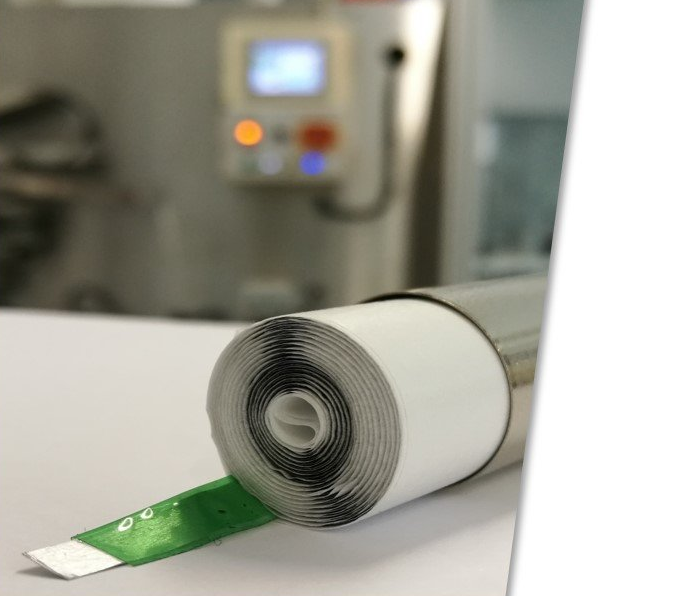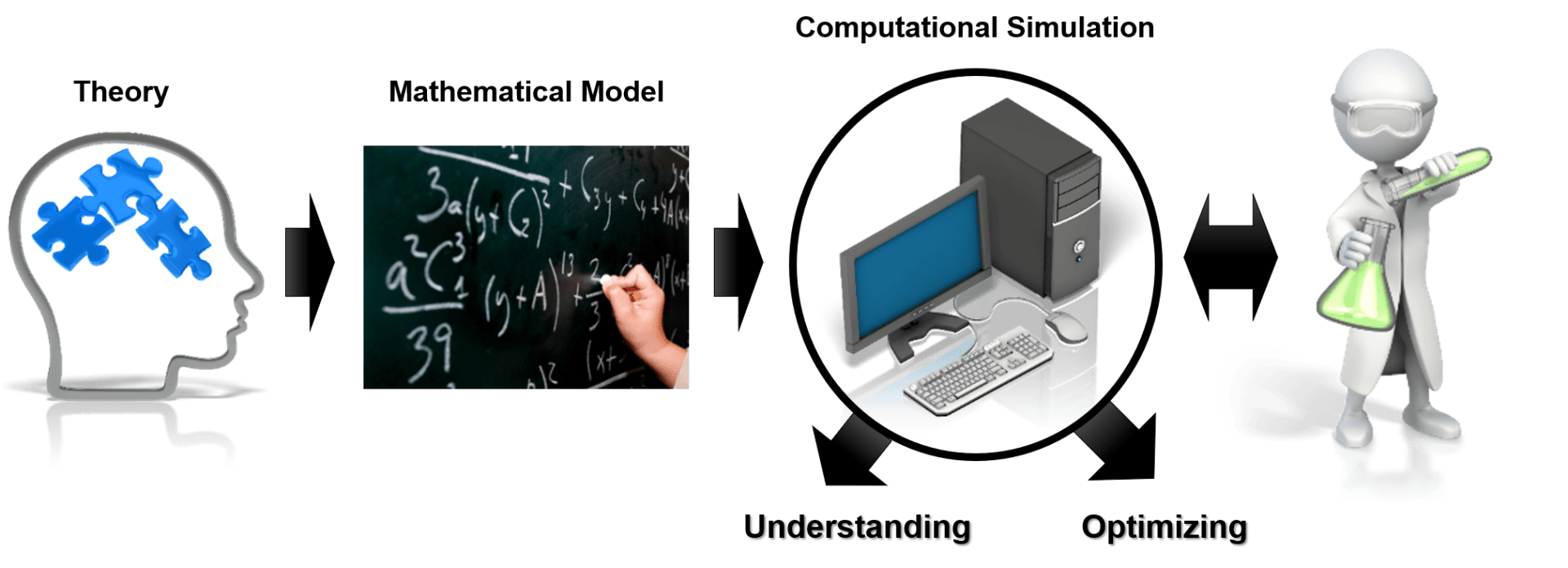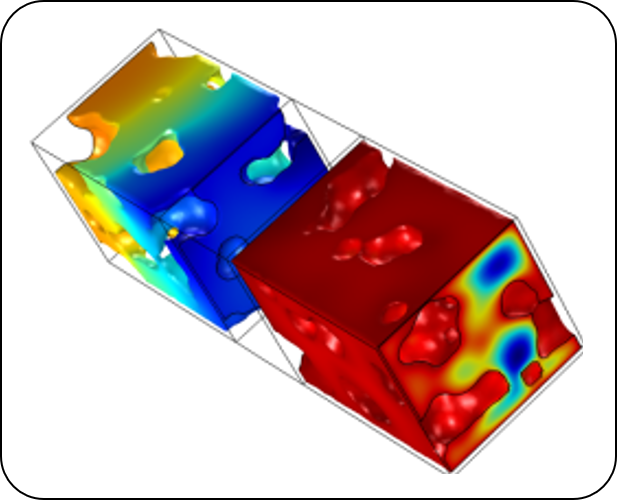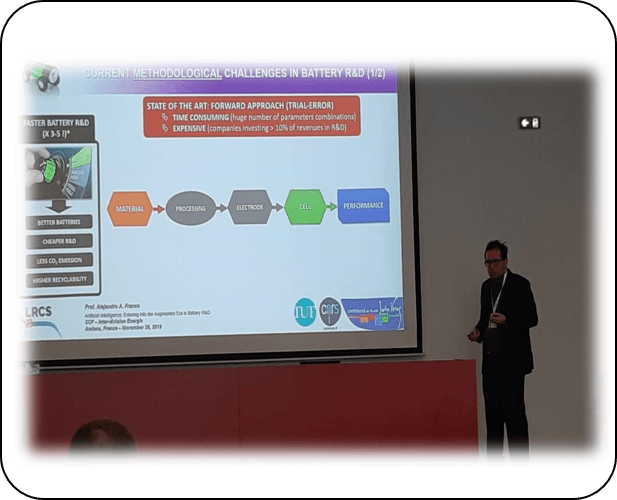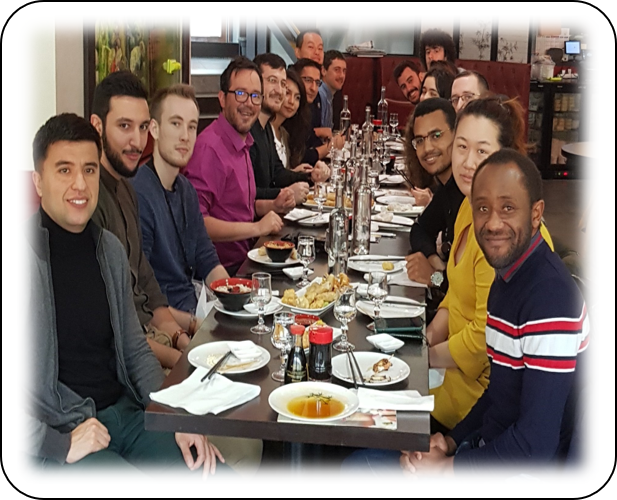Energy Storage & Conversion Devices
We perform research about electrochemical devices for energy storage and conversion, such as batteries and fuel cells. We aim at optimizing and at innovating these devices design.
Multiscale Modeling & Characterization
We develop advanced multiscale physical models of electrochemical energy devices (e.g.
batteries) and of their manufacturing process, together with advanced experiments.
Data Science &
Artificial Intelligence
We develop data mining tools and artificial intelligence/machine learning models to find out interdependencies between experimental parameters and for inverse design.
Virtual Reality &
Mixed Reality
We develop innovative Virtual/Mixed Reality software for immersive and interactive data visualization and simulation. We also use them for teaching and for science popularization events.
About us
Prof. Alejandro A. Franco's group works in the field of electrochemical energy storage and conversion devices such as batteries and fuel cells.
It has an unique expertise encompassing computational multiscale modeling techniques, advanced experimental characterization, Data Science, Artificial Intelligence/Machine Learning & Virtual/Mixed Reality tools. The team aims at advancing these energy technologies to boost their deployment in the undergoing societal transformation motivated by the Climate Change and limitation of fossil fuels. Prof. Franco's team is located at the Laboratoire de Réactivité et Chimie des Solides -LRCS- (UMR CNRS 7314) at Université de Picardie Jules Verne, in Amiens, France. LRCS is the headquarters of the French Network on Electrochemical Energy Storage (RS2E) and member of the ALISTORE European Research Institute.
Prof. Franco's group research paradigm consists at first designing theories aiming at explaining experimental observations by describing the operation principles of electrochemical energy devices. These theories are then translated in terms of mathematical equations, frequently too complex to be solved by hand. Then, the equations are implemented in computer programs (models) allowing to solve them and to simulate the behavior of materials, interfaces, components and electrochemical cells. The simulations results are systematically confronted with in house
experimental data to parameterize and to validate the models. Once validated, the models are used for optimization and for prediction. Furthermore, Data Science and Artificial Intelligence are used to find parameters interdependencies in large datasets, whereas Virtual/Mixed Reality are used to visualize results in an interactive and immersive way and to disseminate the work to the large public and to the students.
Discover in detail what we do
Research Activities
Learn about Prof. Franco's group research activities encompassing energy-related topics, advanced computational simulation, artificial intelligence and experimental techniques.
Team
Discover the talented and international team of postdoctoral researchers, PhD and MSc. students working with Prof. Franco.
Projects
Learn about the ongoing and past projects the team is/was involved, including Prof. Franco's ERC Project "ARTISTIC", dealing with digital twins of the manufacturing process of Lithium Ion Batteries.
Publications
Keep updated about Prof. Franco's group scientific publications. This section also includes patents, book chapters, edited books and links to some of the developed software.
Conferences and Seminars
Learn about the conferences and seminars given by Prof. Franco and his group, including invited oral presentations and keynotes all over the world.
Teaching
Prof. Franco is very committed with teaching. Discover his teaching units and innovative teaching methods, including practices using Virtual Reality and Mixed Reality. Discover also the pop science activities in festivals such as Pint of Science.
News
Keep yourself updated about the latest news from Prof. Franco's group, including latest publications, latest conferences, scientific visits and seminars. This section gives you access to Prof. Franco's professional social media channels.
Press
Prof. Franco is regularly invited to give interviews in magazines, newspapers, radio, TV, etc. Read/watch them from here ! This section also includes recordings of some of the invited conferences given by Prof. Franco.
Miscellaneous
In this Miscellaneous section you will find some illustrative photos of Prof. Franco's team, research activities and much more !
Prof. Franco's Curriculum Vitae
Learn more about Prof. Franco's achievements, expertise and more !
